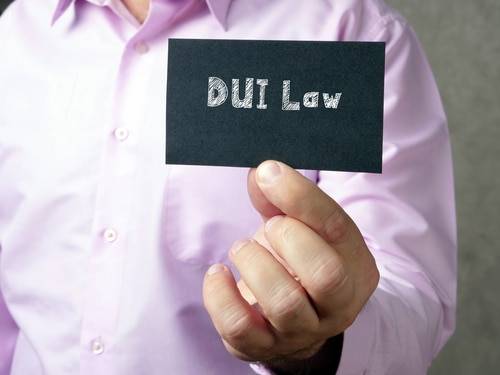If you are facing a DUI charge in Arizona, you must make informed decisions about your defense. What you don’t know can cost you; if you make mistakes, you can face life-altering consequences unnecessarily.
So, what do you need to know about your case? The simple answer is, “More than you might think.” Several key factors will determine what you have at stake, what defenses you have available, and what you need to do to secure the best possible outcome in light of the circumstances.
You Must Be Able to Answer These 10 Questions to Make Informed Decisions about Your Arizona DUI Defense
Fighting a DUI charge in Arizona isn’t easy. But, with the necessary information, approach, and legal representation, you can protect yourself effectively. With this in mind, here are 10 questions you need to answer in order to make informed decisions about your defense:
1. Are You Being Charged with DUI, Aggravated DUI, or Extreme DUI?
Arizona’s DUI statute is unique in establishing several different DUI offenses. The most common of these offenses are DUI, aggravated DUI, and extreme DUI. When facing a drunk driving charge, you must know which specific offense prosecutors allege. DUI, aggravated DUI, and extreme DUI charges carry different penalties, and each presents its unique set of challenges when mounting a successful defense.
2. Are You Being Charged as a Repeat Offender?
If you have a prior DUI conviction on your record, prosecutors may be charging you as a repeat offender. Under Arizona law, convictions for second and subsequent DUIs carry enhanced penalties. To qualify as a “prior offense,” your previous conviction must have come within the last seven years. There are other requirements as well, and an experienced DUI defense lawyer will be able to determine if you have grounds to assert that your current DUI should be treated as a first offense.
3. Did the Police Violate Your Constitutional Rights?
If the police violated your constitutional rights during your traffic stop or arrest, the government’s evidence against you might be inadmissible in court. Without admissible evidence, the prosecution won’t be able to convict you. Racial profiling, making arrests without probable cause, and conducting custodial interrogations without reading suspects’ Miranda rights are just a few examples of constitutional violations that can have major impacts on Arizona DUI cases.
4. Have Prosecutors Violated Your Constitutional Rights?
If prosecutors have violated your constitutional rights, this could also provide you with a strong defense. Examples of prosecutorial violations include withholding exculpatory evidence, conducting discriminatory jury selection, and unreasonably delaying trials. The availability of these (and other) defenses depends entirely on the particular facts of your case, and you will need to work with an experienced defense attorney to determine if you can use these defenses to your advantage.
5. Did You Violate Arizona’s DUI Law?
When facing any type of DUI charge, it is important to know whether you have violated Arizona’s DUI law. If you violated the law, you would need to approach your case differently than someone who is innocent. From Arizona’s “temporary shelter” defense to the definition of “actual physical control of a vehicle,” there are several aspects of Arizona’s DUI law that most people find surprising. At this stage, you cannot afford to make any assumptions, and you need to ensure that you have an accurate understanding of how the law applies to your case.
6. Are You Being Charged Based on Impairment or High BAC?
Another aspect of the law that many people find surprising is that prosecutors can secure a DUI conviction based on impairment or a high blood alcohol concentration (BAC). Prosecutors do not need to prove both. Section 28-1381(A)(1) of the Arizona Revised Statutes provides that a person can be convicted of DUI if the person is “impaired to the slightest degree.” Section 28-1381(A)(2) provides that a person can be convicted if the person’s BAC is 0.08% or above.
7. What Evidence Does the Prosecution Have Against You?
In criminal court, the only thing more important than the facts is the evidence that is available to prove those facts. Prosecutors can only secure a conviction if they can prove your guilt beyond a reasonable doubt. If prosecutors don’t have the evidence they need to meet their burden of proof, you are entitled to walk free regardless of the facts at hand.
8. When Is Your Next Court Date?
When you have a court date scheduled in Arizona, you are required to show up. If you aren’t in the courtroom when your hearing or trial starts, you can be charged with failure to appear. The judge can issue a bench warrant for your arrest and order the Motor Vehicle Division (MVD) to suspend your driver’s license effective immediately.
9. Is It In Your Best Interests to Testify?
Sometimes it will make sense to testify in your own defense, and sometimes it won’t. If you take the stand voluntarily, you will be subject to cross-examination, and your testimony might not go as planned. On the other hand, testifying in court also allows setting the record straight; if it goes well, it can put the jury on your side.
10. Is It In Your Best Interests to Negotiate a Plea Bargain or Go To Trial?
Finally, you need to know whether negotiating a plea bargain or going to trial is in your best interests. While negotiating a plea provides certainty, it also means resolving your case with a criminal record. Conversely, going to trial gives you a chance to walk free, but you could also face substantial penalties and need to file an appeal.
Schedule a Free Consultation with an Arizona DUI Lawyer at The Weingart Firm
If you are facing a DUI charge in Arizona, we encourage you to contact us promptly to discuss your case confidently. To schedule a free consultation with an Arizona DUI lawyer as soon as possible, call 480-405-7922 or tell us how we can reach you online now.






